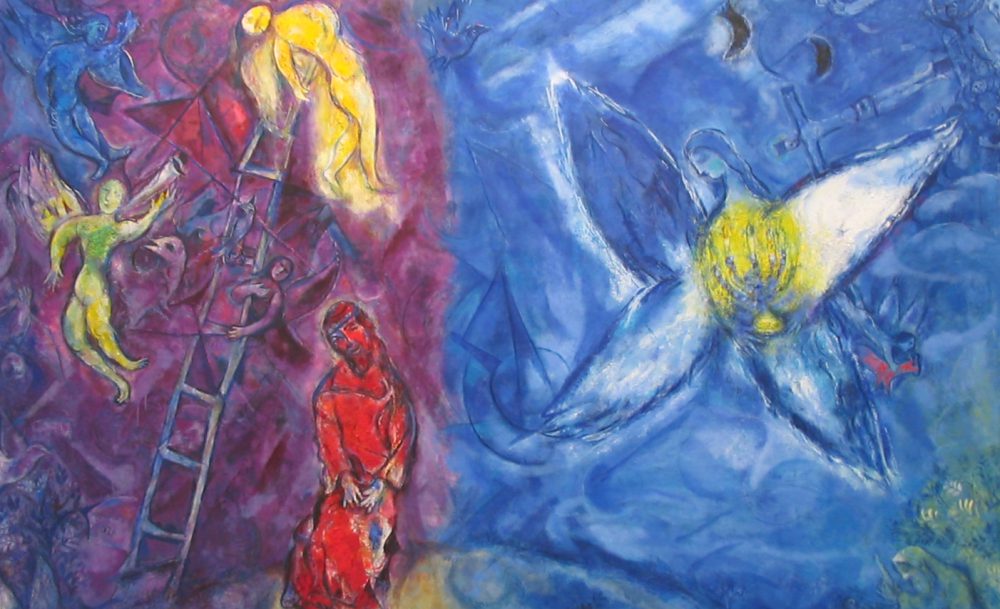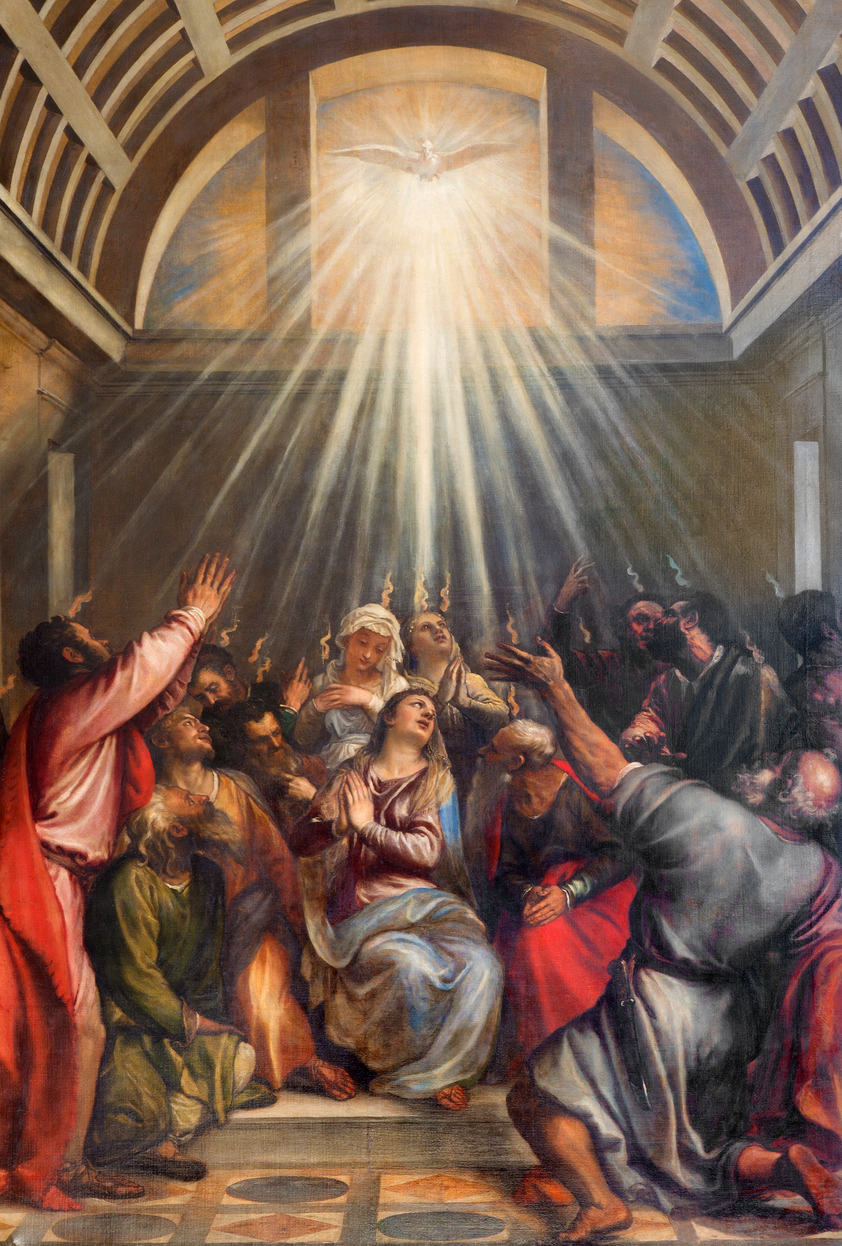You can see all the lectionary readings for the Day of Pentecost, Year C by clicking here. I have chosen to discuss the passage from the book of Acts.
Even though I want to focus on Acts, I’ll go over the John passage a little because it comes first chronologically. Jesus is speaking to his disciples during his Last Supper and he has told them he is going to prepare a place for them in his Father’s house, which he says has many rooms. He is talking about going to be with God and they are understandably a bit freaked out at the way he is talking. Philip says, “Show us the Father and that will be enough for us.” Jesus tells him, “Don’t you know me after all this time we’ve been together? If you’ve seen me, you’ve seen the Father.” He tells them God is living in him, doing his work through him. He says, “Believe me when I say I am in the Father and the Father is in me; or at least believe on the evidence of the works themselves.” Then he goes on to promise that he will ask the Father to send an Advocate. He says, “This is the Spirit of truth, whom the world cannot receive, because it neither sees him nor knows him. You know him, because he abides with you, and he will be in you.” This is a deep passage. About as simple I can make it is to say, Jesus tells his followers that he will be leaving them to go to Heaven but he will send them a helper to be with them always and help them do his work. The Holy Spirit helps us to live as God would have us live and shows how to truly love others.
The Acts passage is a bit more of a story to tell, though it can still be a bit confusing. It’s actually a bit of an exciting story with roaring winds and tongues of fire and miracles. On the day of Pentecost, (which was a Jewish holy day) all Jesus’ followers were gathered in one place, probably to celebrate the day because they were all Jewish and following Jewish customs as well as following Jesus. (This was after Jesus had been taken up to Heaven and the apostles had chosen a replacement for Judas, who had betrayed Jesus. The replacement’s name was Matthias, just so you know.) While they were in this house together, a violent wind blew down from heaven and filled the house. Then they saw tongues of fire settle on each of them. That was a visible sign of the miracle that followed. They were all filled with the Holy Spirit and began to speak in other languages.
It seems that they went outside among the crowds of people visiting Jerusalem for Pentecost and began to speak to them, and the people were amazed that they all heard their own languages from these Galileans. And picture the apostles; they were not all a bunch of rabbis or well-educated men. They were fishermen and the like, for the most part. So this bunch of working-class dudes emerges and they are all speaking in languages everyone can understand, though the crowds are from all over the place and speak many different languages. They asked one another, “What does this mean?” And this part is a little funny—some of them think they’re drunk. I suppose that would explain this group of people coming out and speaking all at once but not the fact that everyone can understand in his or her own language.
Then Peter speaks up and addresses the crowds and tells them, they’re not drunk, it’s only 9 in the morning! (Look at Peter, remember what we said about him after Jesus reinstated him by saying “Feed my sheep”? This is him as a leader of the new church, strong and fearless, never denying his Christ again!) He quotes them a scripture from the book of Joel, a promise that God would pour out his Spirit and his servants will prophesy and there will be wonders. The point is he basically goes on from there to tell them all about Jesus and his teachings and called on them to repent and be baptized in the name of Jesus Christ.
Pentecost is traditionally seen as the birth of the church. Before they were all kind of hanging out; Jesus had died, risen, and then ascended into heaven again, and they were just sort of waiting and praying. Then after the miracle of Pentecost happens and Peter makes his great sermon, they go on to have more miracles and spread the word of God and the love of Jesus everywhere. Pentecost was the moment it really took off and the church began. Here began the church as a world-wide family and we can carry the love of God out from where we are into the larger world as they did on that day.

